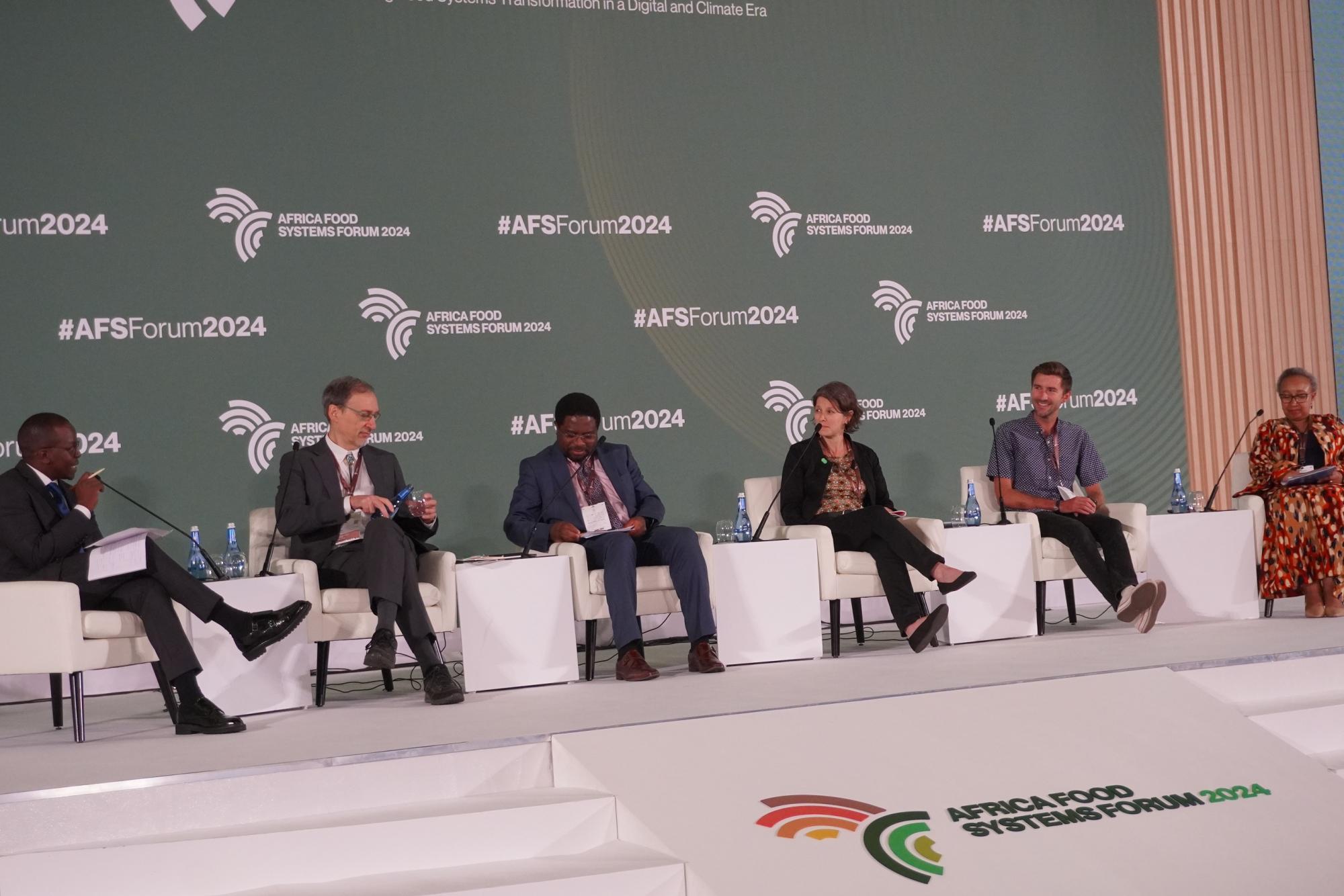
Reimagining food systems for improved nutrition and health at the African Food System Forum
Core message
On 4 September 2024, the African Food Systems Forum in Kigali, Rwanda, held a plenary session on Food Systems and Nutrition, bringing together leaders in food systems, agriculture, and nutrition to discuss the urgent need for food systems that prioritize nutrition.
Malnutrition costs the African continent billions due to increased healthcare expenses and lost productivity. Micronutrient deficiencies, often a silent killer, impair cognitive development, especially in children, while rising levels of overweight and obesity negatively impact human health and the labor force along food system value chains.
Experts called for investments in school meal programs, sustainable livestock systems, and policies that ensure affordable, nutritious food for all, especially children. These efforts are key to transforming Africa’s food systems, making them more resilient, equitable, and capable of meeting the nutritional needs of all, particularly the most vulnerable.
Key takeaways from the session:
- Food systems must prioritize nutrition: To combat malnutrition, Africa’s food systems need to focus on providing affordable, nutritious food for all, especially children, to reduce the economic and health impacts of poor diets.
- Innovation can transform food systems: Investing in solutions like school meal programs and new food technologies can improve nutrition for children, support local economies, and build more resilient food systems across the continent.
- Animal-source foods can help address malnutrition: Often overlooked in food policies, livestock provides essential nutrients and supports livelihoods, making it important for improving nutrition, especially for children and vulnerable communities.
Highlights from the panelists
- Roy Steiner, senior vice-president of Food Initiatives at The Rockefeller Foundation and an AGRA board member, addressed the shortcomings of current food systems, which often prioritize ultra-processed foods over healthier, more diverse options. He highlighted several actions and alliances working to tackle these issues, including the Periodic Table of Food Initiative, a global project mapping the nutritional content of foods to promote healthier diets and more sustainable food systems. Steiner also emphasized school meals as a powerful solution that not only improves nutrition but also increases school attendance and supports local economies. Additionally, he pointed to the Fortified Whole Grain Alliance (FWGA), a global coalition focused on increasing the availability and consumption of fortified whole grains, with the aim of improving nutrition for over 10 million people across multiple countries by 2025.
- Appolinaire Djikeng, director general of the International Livestock Research Institute (ILRI), highlighted the central role of livestock in African food systems, supporting the livelihoods, nutrition, and income of around 700 million people. He compared the multifunctionality of livestock systems to that of an iPhone, offering diverse uses and benefits. He also emphasized how livestock-derived foods–such as a single egg or glass of milk daily–can help meet the nutrition needs of children, particularly in the first 1,000 days of life. Djikeng reaffirmed ILRI’s commitment to advancing sustainable livestock systems, ensuring food safety, and building resilience for livestock producers, especially pastoralists.
- Lawrence Haddad, executive director of the Global Alliance for Improved Nutrition (GAIN), called for concrete policies and investments to make healthy food more accessible. He stressed the need for political environments that prioritize nutrition and integrate food systems with sectors like education, where schools can teach children about food production, health and sustainability. He emphasized the private sector’s role in expanding production of horticulture, eggs, dairy, and fish to lower prices and make nutritious foods more affordable. Haddad also urged for a balanced approach to livestock consumption, promoting greater access to animal-sourced foods for those in need while supporting sustainable practices and exploring alternative protein sources to reduce environmental pressure.
- Joan Matji, UNICEF country representative in Botswana, highlighted the severe impact of malnutrition on millions of children worldwide, reporting that 200 million children are undernourished, while nearly 400 million are overweight. She argued that current food systems are failing children by focusing on staple crops and exposing them to unhealthy, processed foods. She called for global action to ensure food systems provide diverse, nutritious, and safe diets that meet children's unique nutritional needs, and uphold every child’s right to food and health under the United Nations Convention on the Rights of the Child.